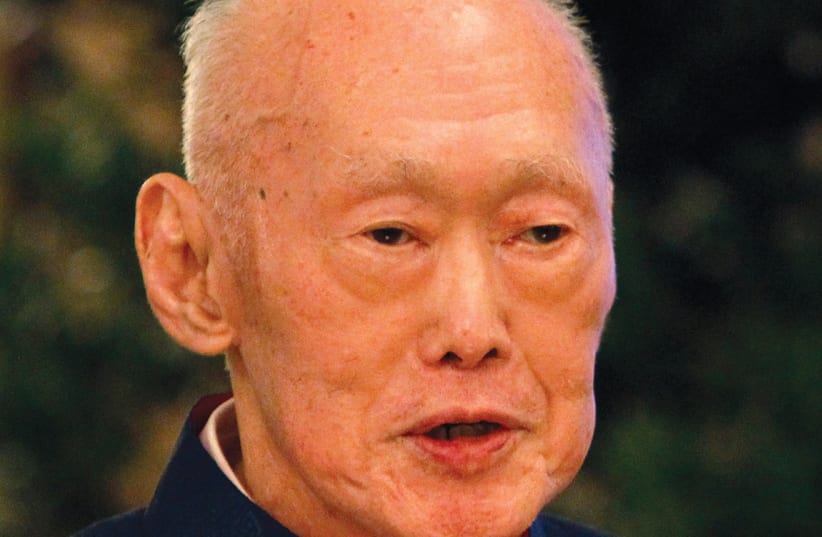At the same time, the instabilities consequent upon the outflow of refugees after the break-up of Iraq, Libya and Syria; from a Lebanon that is in effect a failed state under the control of Hezbollah which is an Iranian proxy; and from an ambitious Turkey under Erdogan fishing in troubled waters, have placed great stresses on Egypt and Jordan, and again accentuated the concerns of Gulf states, in particular, Saudi Arabia and the UAE. All this has boosted the strategic importance of Israel which despite its political dysfunctionalities, is the most economically dynamic and stable state in the region, impelling a more pragmatic approach towards Israel.
Every geopolitical shift creates new winners and losers. Israel is clearly a winner. Iran has clearly been disadvantaged as Tehran now faces a de facto anti-Iran coalition backed by the US. Israel, which has been fighting a proxy war against Iran in Syria for several years, is central to this coalition which is incapable of standing up to Iran without Israel’s military heft.
Although the Biden administration has restarted negotiations with Iran to try and revive Obama’s nuclear deal, that will not be easy given the deep distrust between Washington and Tehran. US President Joe Biden's administration has also said it will encourage other Arab states to join the Abraham Accords.Since those accords are in effect an anti-Iran coalition, it is unclear how the Biden administration intends to reconcile these contradictory goals, if indeed it really intends to do so. Biden himself has a long-standing personal commitment to Israel’s security.
The week before the start of the missile attacks, on May 10, Islamic Revolutionary Guard Commander Maj.-Gen. Hossein Salami said in an interview that Israel was “collapsing from within” and its small size made it vulnerable to a large-scale tactical operations. The unprecedented number and intensity of missile salvos that Israel was subsequently subjected to could be considered such an operation. Iran has close ties with Hamas and Palestinian Islamic Jihad, which have been responsible for the overwhelming majority of the missile attacks. Iran had long vowed revenge for various acts of sabotage and assassinations attributed to Israel.
If this was Iran’s intention, from a purely military point of view, it was a failure. Israel’s missile defenses are holding up well and Israel has not been deterred from retaliating. But Iran’s intentions were also political: to delegitimize Israel’s right to self-defense; to place the Arab governments who had joined the Abraham Accords in a difficult position; to drive wedges between those governments and their own peoples who after decades of propaganda about the Israel-Palestine dispute are much more emotionally invested in the issue than their own governments and to boost Tehran’s own position in the Muslim world.
The jury is still out on these political objectives which so far appear to have some degree of success. But whether the stresses that have emerged can negate the Abraham Accords and break-up the emerging anti-Iran coalition is another matter entirely. I doubt it. The Abraham Accords were the result of fundamental geopolitical shifts that are not so easily deflected, although the road ahead will be neither smooth nor straight.
Whatever our personal human responses to the Palestinian issue and the many other conflicts in the Middle East, it is important for Singaporeans to maintain objectivity. Singapore has no direct interest in most of these conflicts because they arise from local political factors that have nothing to do with us. It is also important to maintain objectivity because were it not for Israel’s help to build the Singapore Air Force at a desperate time when no other country was willing to help us. I do not want to exaggerate the point, but imagine where we would have been if Israel had lost the Six Day War or otherwise proven militarily incompetent?
Of course, we should also learn from Israel’s mistakes. Singapore’s late prime minister, Lee Kuan Yew, once told an Israeli general that Singapore had learned two things from Israel: how to be strong, and how not to use our strength – meaning that it was necessary to use strength to get along with neighbors and not live in perpetual conflict. We should also take note of the societal stresses within Israel that have emerged during this latest round of conflict.
It is important that we do not, because of emotional responses, degrade the principle of the right to self-defense in a way that could one day rebound against ourselves. Not too many years ago, a terrorist group, no doubt inspired by Hamas, was caught plotting to launch missiles at Singapore from Batam. We were fortunate to have the cooperation of the Indonesian authorities to stop them, but politics in Southeast Asia is always volatile and always unpredictable.
As a final word: when thinking about Israel in the Middle East it is useful to bear in mind the following quote from Vietnam’s famous General Vo Nguyen Giap. He once said: “PLO people come to me all the time asking for advice on how to get rid of Israel. After all, we Vietnamese defeated both France and the United States. My answer is always the same: the French went back to France and the Americans went back to America. The Jews have nowhere to go. So you can’t beat them.”
The writer is a Singaporean academic, and retired diplomat and civil servant. He was permanent secretary at the Singapore Ministry of Foreign Affairs, and served as ambassador to the UN and Russia. He has visited Israel many times. This is adapted from a recent address he gave in Singapore.
